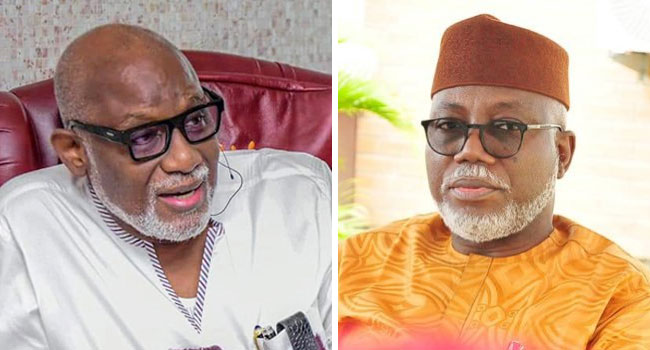An Akure High Court in Ondo State has dismissed a suit filed by the Deputy Governor of the state, Hon Lucky Aiyedatiwa, challenging his impeachment by the Ondo State House of Assembly. The ruling, delivered by Justice O. Akintan-Osadebay, cited a lack of jurisdiction to avoid conflicting verdicts between the Ondo High Court and the Abuja Federal High Court.
Aiyedatiwa’s legal challenge was based on his impeachment by the state House of Assembly. In the suit, he sought a declaration that the House of Assembly was not competent to proceed with his impeachment, alleging a breach of his constitutional and fundamental rights to fair hearing. The deputy governor also raised concerns about the sacking of his media aides and his subjection to the Ministry of Information, arguing that it amounted to a breach of his rights and privileges.
The court ruling emphasized that engaging in “forum shopping,” or filing the same case in different courts, was a gross abuse of the court process. The judge declined jurisdiction, highlighting the importance of avoiding conflicting decisions between different courts.
Aiyedatiwa had approached the court seeking various declarations, including the protection of his office, tenure, status, rights, and privileges guaranteed by the constitution. He also sought an injunction to stop the House of Assembly from initiating or continuing the process of his removal from office.
The court’s decision underscores the complexities of legal proceedings and jurisdictional issues surrounding the impeachment process. The ruling also aligns with the court’s commitment to prevent conflicting verdicts on the same matter.
Meanwhile, a group called Ondo Masses Solidarity Movement (MSM) has alleged that the deputy governor has not withdrawn the lawsuit despite reports suggesting reconciliation efforts. The group criticized Aiyedatiwa for pursuing legal actions while professing reconciliation, citing an appeal against the court’s ruling. The group expressed a loss of confidence in the deputy governor’s ability to hold public office, especially in light of serious allegations related to taxpayers’ money.










